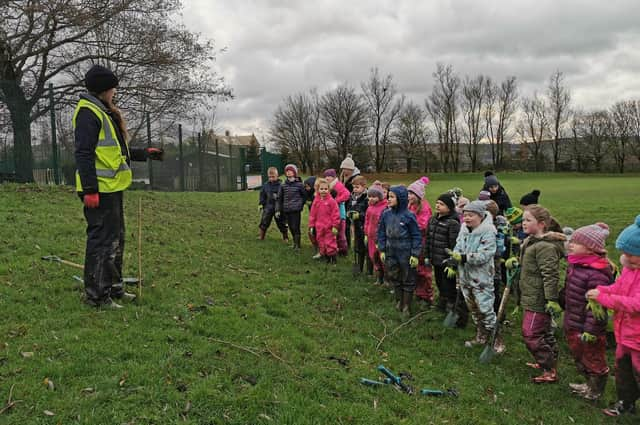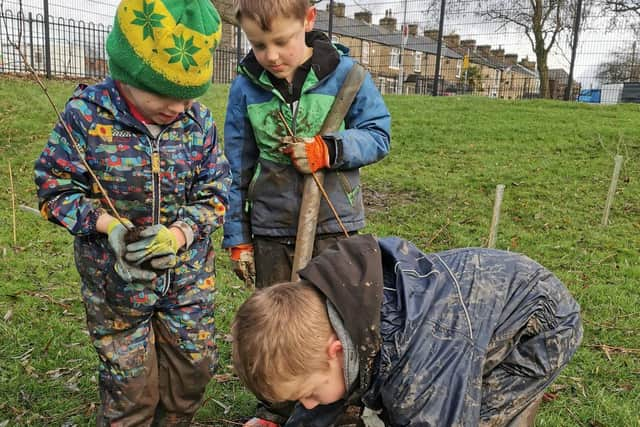Burnley schoolchildren to help plants thousands of trees in school grounds


Charities Ribble Rivers Trust and Prospects Foundation have joined forces with Blackburn with Darwen, Burnley, Hyndburn, Pendle and Rossendale Borough Councils to deliver the Pennine Lancashire Treescapes Project which involves planting nearly 40,000 trees this winter.
Thanks to almost £160,000 of funding from the Forestry Commission’s Local Authority Treescapes Fund and £11,000 from Trees for Cities, a mix of native tree species and fruit trees will be planted in micro woodlands to help combat historic and ongoing losses of trees caused by urbanisation, pests and diseases.
Advertisement
Hide AdAdvertisement
Hide AdRRT and Prospects Foundation have already had interest from dozens of schools eager to plant trees in their grounds. Before planting begins, children will participate in educational activities to learn about the importance of trees for the environment, wildlife and people, as well as what trees need to survive.


Depending on space at each school, between one to 100 plus trees will be planted. Most involved are primary schools but Nelson and Colne College are also participating.
A further 35,400 trees will be planted on 95 council-owned sites including Bank Hall Park and next to Unity College in Burnley and trees will be encouraged to naturally recolonise another two locations.
These sites will be planted by the councils along with volunteer groups including Trees for Burnley and Pendle Extinction Rebellion.
Advertisement
Hide AdAdvertisement
Hide AdSpecies to be planted from January to March include English oak, alder, goat willow, silver birch, hawthorn, hazel, bird cherry, wild cherry, rowan, hornbeam, field maple and crab apple.
It’s hoped that local residents will volunteer to help plant the trees and benefit from the outdoor physical activity and chance to meet new people.
“It will also boost the chances of local people caring for the trees as they grow, ensuring they mature into healthy trees,” said Ellie Brown, RRT’s Strategic Evidence and Geographic Information System Manager.
“Local people will benefit too from the fruit grown on the fruit trees, which they are welcome to harvest and eat.”
Advertisement
Hide AdAdvertisement
Hide AdAll the trees are being planted in areas visible to the public and will improve the quality of green space already provided.
The trees will also help to reduce the impacts of air pollution, reduce the risk of flooding, absorb carbon, improve river water quality, provide much-needed homes for urban wildlife and help to reconnect up other woodland habitats, all in locations that evidence suggests need these benefits the most.
For further information about Ribble Rivers Trust, visit www.ribbletrust.org.uk or contact Ribble Rivers Trust on 01200 444452 or via [email protected].